Interior Minister: There is a “White Al-Qaeda”
Interior Minister of the Republika Srpska, Dragan Lukač, underscores that the recent referendum on the national day of the enclave republic should not be perceived as a step towards independence, since he very well understands that such a move could lead to yet another war. In an interview with Nya Tider, he notes that every nation has its national holiday, and so should Republika Srpska. Among his observations is also the existence of a “White Al-Qaeda” consisting of Bosniaks who are Europeans in appearance and descent but also Muslim jihadis.
Published: October 9, 2016, 11:47 pm
FWM: Before the Referendum, warnings of a terrorism threat to Republika Srpska appeared in the media. The Referendum passed peacefully, but is there real danger during the forthcoming municipal elections; what is the situation in the security sphere on the whole?
The situation in the security sphere in Republika Srpska is stable and is holding at a satisfactory level. As far as the Referendum is concerned – on its eve the tensions all around Bosnia and Herzegovina were at the highest level. Bosnians in the Bosniak-Croat Federation made declarations claiming that the referendum was aiming at the separation of the Republika Srpska, which was totally untrue and had never been mentioned by the representatives of the republic. We are acutely aware of the fact that the separation of the Republika Srpska in such a way would probably lead to a new war and, in my opinion, nobody in Bosnia and Herzegovina needs it now: all of us have had enough of the war and losses that both parties suffered. I hope that everyone will be thoughtful enough in order not to seek such means for the solution of similar political issues, that is, for the repartition of Bosnia and Herzegovina by means of war. Nevertheless I think that many people had been aware of the possibility that certain radical circles, and by them I mean Islamic radical groups, which had considerably intensified their activity in the last decade due to appearance of a jihadist movement in the country, could have used the tension. It is known that over 60 para-jamiyas exist in the wahhabite unity in the territory of Bosniak-Croat Federation.
(Note: Jamiya is the Arabic word for gathering. Now mostly used to denote a group of Muslims communing with the aim of studying Islam, as well s the conducting of religious rituals and mutual aid. The so-called para-jamiyas are Muslim communities similar in form to jamiya, but independent of the official religious structures and as a rule embracing a non-canonic, radical form of Islam.)
These para-jamiyas are not controlled by the Islamic community of the country and do not abide by the laws of Bosnia and Herzegovina, but live in accordance with their own regulations. All the acts of terror that have been carried out in the territory of Bosnia and Herzegovina lately were plotted by the wahhabite movement. One of those acts of terror took place in Zvornik (in the territory of RS – the author’s note), where a member of the wahhabite movement attacked a police station, killing one and wounding two of our policemen, and was therefore eliminated by our law-enforcement officers.
Thus, real danger of terrorism, i.e., isolated terrorist acts against state institutions, exists in Bosnia and Herzegovina and the wahhabite movement is fraught with it. In this context, before the Referendum we received some intelligence that those circles were plotting such acts, I mean, they conduct talks and preparations for carrying out such terrorist acts. Hence, we used all our resources within the Police of Republika Srpska and raised awareness to the highest level.
The Referendum was a success. The attendance was generally on the level of that observed during elections. And more than 99 per cent of those who took part in it, voted in favour of the Day of Republika Srpska to remain a holiday.
FWM: What will your comments be on the information spread by the media about the so-called “White Al Qaeda” allegedly extant in Bosnia cooperating with radical Islam groups in the EU and linked to the recent terrorist acts in particular?
We have got to go back to the roots – that is, to the hostilities in the territory of Bosnia and Herzegovina (in the first half of the 1990s – author’s note), when the country’s Muslem authorities made it possible for jihadi militants from Arab countries to come here. Several thousand of them passed via Bosnia and Herzegovina, at that they were serving in the army of Bosnia and Herzegovina, that is, the Muslim army. Many of them committed war crimes at the time when they were in the territory of Bosnia and Herzegovina. They cut off the heads of captured Serbian soldiers, in the same way as they do now in Syria and Iraq. Evidently, it did not bother the global community at the time, as Serbs had been stigmatized as “bad guys”. Now the media all over the world bewail such facts, especially when the captives butchered in such a cruel way are from Western countries.
After the war they (the jihadists) stayed in Bosnia and Herzegovina; many of them started families here, acquired citizenship and passports. They are still in Bosnia and Herzegovina. Many people here (owing to them) caught the disease of radical Islam during the war. At present these people are considered a part of some “White Al Qaeda”, the members of which do not look like Arabs, as they European in appearance. They easily travel around Europe without being paid attention to. We must understand that all terrorist acts that took place in the world were in some way or another connected with Bosnia and Herzegovina and the jihadists, who were present here during the war and in the aftermath of it created their strongholds here. Beginning with the 9\11 (2001) terrorist attack and ending with similar attacks in Europe – there are links with the people, who visited Bosnia and Herzegovina, contacted certain persons here, or used arms brought from Bosnia and Herzegovina for carrying out those attacks. Unfortunately, it badly affects the image of Bosnia and Herzegovina in Europe and in the world. They feel the danger originates in Bosnia and Herzegovina here in Europe, because the strongholds of Al-Qaeda are here, and lately of the so-called Islamic State as well, the militants of which are recruited exactly in the para-jamiyas that can be found here. Eventually they go to the battlefields in Syria – several hundreds of the ISIS fighters here are citizens of Bosnia and Herzegovina. As a percentage ratio it is Bosnia and Herzegovina that is home to the biggest number of militants in Syria – taking into account its population number. More than 50 died on the Syrian front, and according to our data, over one hundred returned here. They are the people coming back here with their radical ideology, which they are going to spread and attract new adepts, forming a wide network, which will eventually damage the image of Bosnia and Herzegovina greatly. And this will create risks for Europe.
There are no such para-jamiyas in the Republika Srpska itself; there are no wahhabite organizations here. The police of Republika Srpska have the entire territory under full control and do not allow such organizations to emerge. At the same time, there are individuals that have contacts with radical extremists, although at the moment we have control over them.
FWM: And how do you estimate the risks for Europe in the aftermath of the recent terrorist acts and the influx of migrants from the Middle East (probably infiltrated by extremists), has it increased the threat in broad terms?
As far as the migrant influx is concerned – it was intense last year, but this year it is weaker due to the fact that Hungary closed its border and Croatia is also attempting to close it. As a result a significant part of the migrants remained in camps in the territory of Serbia waiting for a chance to break through to Europe. More than one million migrants have already arrived in Europe, and among them there are individuals with radical intentions, which they have already demonstrated in the course of the acts of terror in Paris, where some of those newly arrived, riding on the wave of the migrant crisis, participated.
That is, such people can be found, and they are not isolated cases – they have arrived with a definite goal, they weren’t just escaping the war, as was the case of most people in this migrant wave, I must admit. Their goal is to establish their cells in developed countries, to widen their network and prepare their positions for carrying out terrorist acts, some of which have already taken place and some will evidently occur in the future.
FWM: How do you view the attempts of Sarajevo and Brussels to launch Bosnia and Herzegovina’s entry into NATO under the pretext of European integration?
In any case, Bosnia and Herzegovina is moving in the direction of the European Union, and it is the stance of most present-day politicians. Geographically we are a part of the EU, and there is no denying it. And we will have to see how welcome we are in the EU at the moment, taking into account the many conditions that have been postulated for Bosnia and Herzegovina and will be postulated in the future. This process will probably be complicated by the fact that Serbia has its own position in regard to joining NATO, and I suppose that Serbs in Bosnia and Herzegovina watch Serbia’s political inclinations very closely and they will join NATO only in case of mainland Serbia joining the Alliance.
FWM: Recently the Chairman of the NATO Military Committee General Petr Pavel claimed that the main threats for the Balkans are Islamic radicalism and Russian influence. You have already expanded on the first factor, but why do you think the West considers Russian influence a threat, if Russia does not have military bases in the Balkans?
Sure, there are no Russian bases here in Bosnia and Herzegovina, and consequently, there is no Russian military impact. There are a number of Russian businesses launched in the territory of the Republika Srpska — an oil-processing plant in the city of Brod, the engine oil works “Modrica” and smaller companies which, in my opinion, do not have any effect sufficient for describing them as an economic threat to anyone. And in the military context Russia has no influence whatsoever.
So, I see no threat of Russian influence in Bosnia and Herzegovina. Russian companies entered the oil-processing industry of Serbia, too, and other businesses as well. Nevertheless, there is no military influence there either.
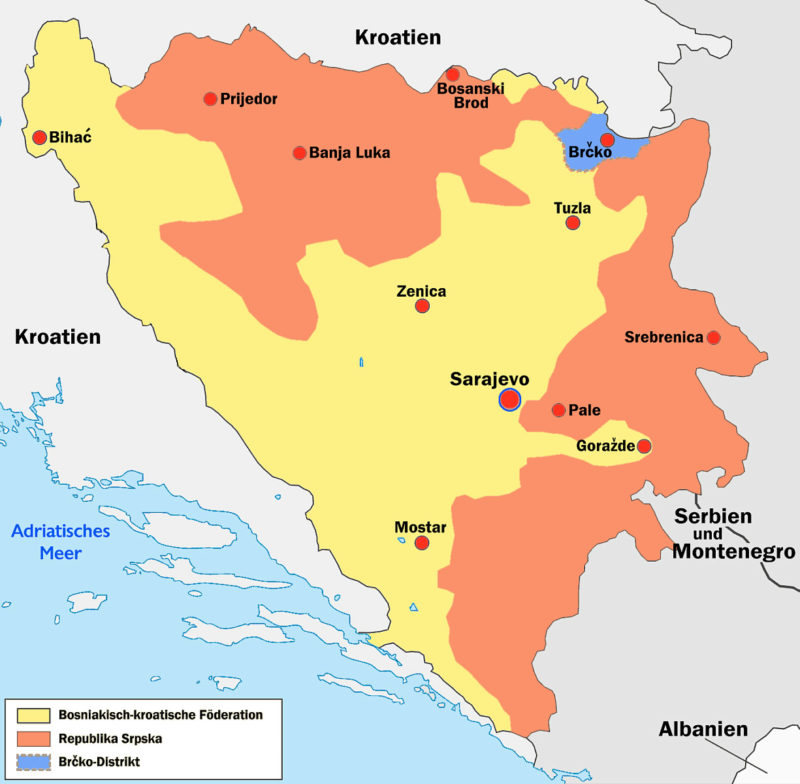
Bosnia and Herzegovina consists of three entities with a high degree of autonomy: The Bosniak-Croat Federationen, Republika Srpska and the small region of Brčko, that splits Republika into two geographical parts. The majority of the population are Bosniaks, about one third are Serbs. The Bosniak-Croat Federationen is in it self complex, consisting of ten federal parts.
FWM: However, Moscow supported Banja Luka in the issue of the Referendum on the Day of the Republic, and this displeased the West, which was against holding he plebiscite.
Support for the Referendum on the part of Russia was expressed by the fact that immediately prior to the Referendum President of the Republika Srpska Milorad Dodik was invited to Moscow to meet the President of the Russian Federation. And he passed along the words of President Putin, who said that the Serbian people have the right to a referendum and that he hoped it would be held in a peaceful atmosphere without any excesses, and wished them good luck. Nothing more. I do not consider these words to be frightful and that they can be interpreted as an influence presenting a threat to anyone.
FWM: The Prosecutor’s Office of Bosnia and Herzegovina is summoning President of RS Dodik for questioning to Sarajevo on charges of violating the ban of the Constitutional Court of B&H on the holding of the Referendum and even threatens to arrest him if he fails to turn up. In this way they are increasing tension in the country. However, Milorad Dodik claimed once that if Sarajevo, supported by Washington and Brussels, kept on reducing the authority of the Republika Srpska, then a Referendum on independence may be held. Such steps are fraught with the destabilization of Bosnia. Why does Sarajevo undermine the security of its own country?
The Constitutional Court of Bosnia and Herzegovina by repeat vote adopted a resolution on Bakir Izetbegovic’s appeal, who is the chairman of the party of Bosnian Muslims SDA – “Party of Democratic Action”, stating that January 9 cannot be marked as the Day of the Republika Srpska. On that day, in 1992, the decision was made to proclaim the Republika Srpska, and it was before the hostilities started — that is, this holiday should not cause any discussions. All states have got their national holiday, which they celebrate, and the Republika Srpska established it as early as in 1992. Obviously, what has taken place was political manipulation and pressure by the Constitutional Court. The more so, when the people from the party of Bakir Izetbegovic together with three foreigners sit on the Constitutional Court in the capacity of Bosnians and for some years now they have had the upper hand when it comes to obtaining a majority vote by the judges of that court.
It should be noted that more than 90 resolutions of the Constitutional Court of Bosnia and Herzegovina have not been implemented. One such decision refers to the city of Mostar, where since the war Bosnians and Croats have not been able to reach an agreement on the way the city should function. Most failures to implement the resolutions of the Constitutional Court are observed specifically in the Bosniak-Croat Federation; nevertheless, no one was questioned in connection with those failures and no cases were filed by the Prosecutor’s Office of Bosnia and Herzegovina. Thus, the problem lies in the political influence on the court and the Prosecutor’s Office of Bosnia and Herzegovina, and if it persists, Bosnia and Herzegovina will perish. This has nothing in common with law and justice. As a result of political pressure on the Court and the Prosecutor’s Office resolutions are adopted that harm the Serbian people. This causes negative reactions inside the Republika Srpska. They should have implemented all the resolutions of the Constitutional Court and bring to justice those who failed to implement them previously. And now we observe a single instance of Serbs having failed to implement the resolution of the Constitutional Court, and they already attempt to bring to justice the President of the Republic. At that, he cannot be held responsible, as the decision about the holding of the Referendum was taken through a vote in the People’s Skupshtyna (the Parliament of RS), and not by the President personally. No court can charge him with such an offence.
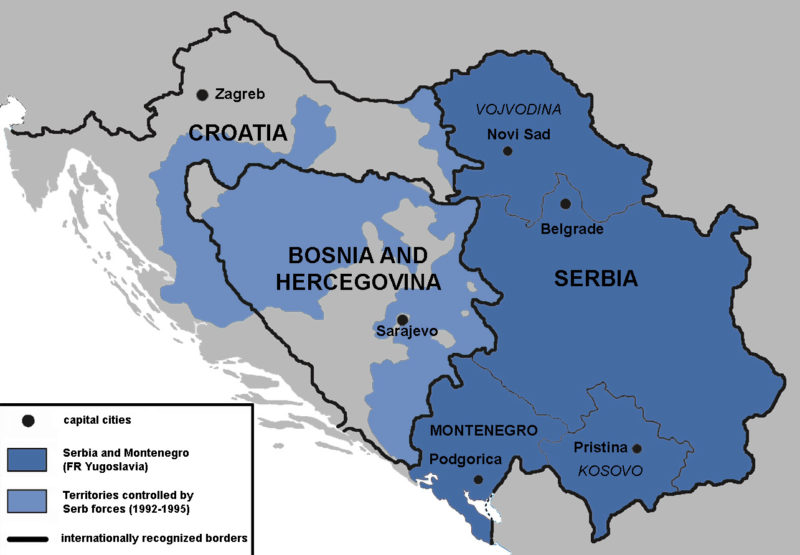
Serbs live in many places outside of what is today Serbia. The blue areas show Serb controlled areas during the Bosnian war 1992-1995.
Radical Islam:
The issue of the radical Islamic movement in Bosnia and Herzegovina often becomes a subject of idle speculation in the media, but at the same time it is insufficiently studied. The interpretation of this subject by at Professor at the US Naval War College responsible for teaching strategy, John R. Schindler, who in the course of ten years served in the National Security Affairs Department as the key expert on the Balkans, seems to be quite true-to-fact. In his book on international terrorism “Unholy Terror: Bosnia, Al-Qa’ida, and the Rise of Global Jihad” (2007) he claims that Al Qaeda took part in the Bosnian war of 1992-1995, where it established itself in the capacity of a terrorist organization.
According to a number of experts, there are up to hundred thousand wahhabite adepts in Bosnia and Herzegovina, and about fice thousand of them are ready for quick mobilization in order to die for their idea. The followers of this radical movement freely train on the premises of several mosques and in many school gyms in the territory of Bosnian municipalities of the Federation of Bosnia and Herzegovina, where they also study the ideology of wahhabism, martial arts and the use of modern firearms. In spite of the fact that the official Muslim community of Bosnia and Herzegovina does not recognize self-proclaimed extremist jamiyas (“para-jamiyas”), it has to avoid open conflicts with them, because it, along with the wahhabites, is also receiving financial aid from Saudi Arabia, which has donated for the needs not only of wahhabites, but of all Bosnian Muslims, hundreds of millions of dollars (also spent on the construction of mosques, Islamic centre’s, etc.).
Constitutional court:
It should be noted that the Constitutional Court of Bosnia and Herzegovina consists of nine judges: 2 ethnic Bosnians, 2 Croats, 2 Serbs and 3 representatives of the international community. As practice proves (including the given case), Bosnian judges and foreign judges usually unite against the Serbian party, and, even if the latter is supported by Croat judges, the majority is as a rule in favor of Muslim Bosniaks.
Bosnian elections on October 2nd:
Western states are now likely to try to harness Dodik by putting him on a “black lists” for disobedience, introduce personal sanctions against him and provide greater support to his political opponents. Nevertheless, the Referendum held against the will of Sarajevo and the West has seriously upgraded the individual rating of the President of Serbian entity and of his party (SNSD), and after it has won in more than a half of all municipalities at the local elections on October 2 (and together with its coalition partners practically occupied positions in two thirds of the bodies of local management), M. Dodik gained even greater legitimacy, which in fact his counterparts will find even more difficult to contravene.
DRAGAN LUKAČ:
During the war in the early 1990s, he commanded special police units, and was wounded several times. As a result, he received a number of decorations, including the Medal of Miloš Obilić for courage and the Order of Karađorđe's Star for the successful command of units. During his career in the police service, he was promoted to the rank of Colonel and has also served as the Head of Municipal Police in the Banjaluka City administration.
After an attack on a police station in Zvornik last year in April, he has been strongly advocating taking pre-emptive measures against potential Muslim terrorists in the Republika Srpska. He is married with four children.
Photo: Sergey Belous
All rights reserved. You have permission to quote freely from the articles provided that the source (www.freewestmedia.com) is given. Photos may not be used without our consent.
Consider donating to support our work
Help us to produce more articles like this. FreeWestMedia is depending on donations from our readers to keep going. With your help, we expose the mainstream fake news agenda.
Keep your language polite. Readers from many different countries visit and contribute to Free West Media and we must therefore obey the rules in, for example, Germany. Illegal content will be deleted.
If you have been approved to post comments without preview from FWM, you are responsible for violations of any law. This means that FWM may be forced to cooperate with authorities in a possible crime investigation.
If your comments are subject to preview by FWM, please be patient. We continually review comments but depending on the time of day it can take up to several hours before your comment is reviewed.
We reserve the right to delete comments that are offensive, contain slander or foul language, or are irrelevant to the discussion.
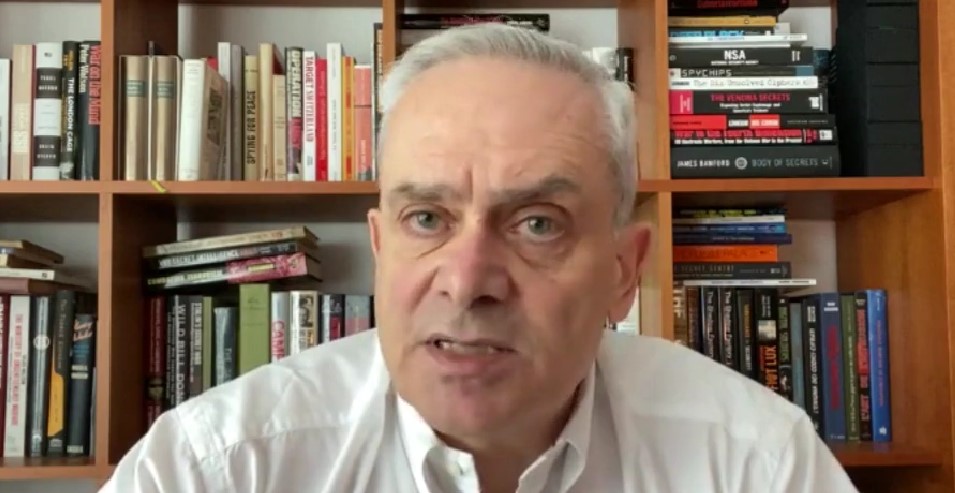
Jacques Baud on the Ukraine war
In an interview with the independent US media portal grayzone.com, the retired Swiss intelligence officer, NATO advisor and author Jacques Baud dealt with the Ukraine war and in particular sharply criticized Western media reporting.

Interview with Thierry Baudet: ‘Fantastic that Putin exists’
The HagueA recent interview with Thierry Baudet has caused a stir on Twitter. For several days now, the trending topic #Baudet has been going around. In the English-language interview, he does not mince his words when talking about the war in Ukraine. In it, he flatly states that he is taking the side of the Russians.
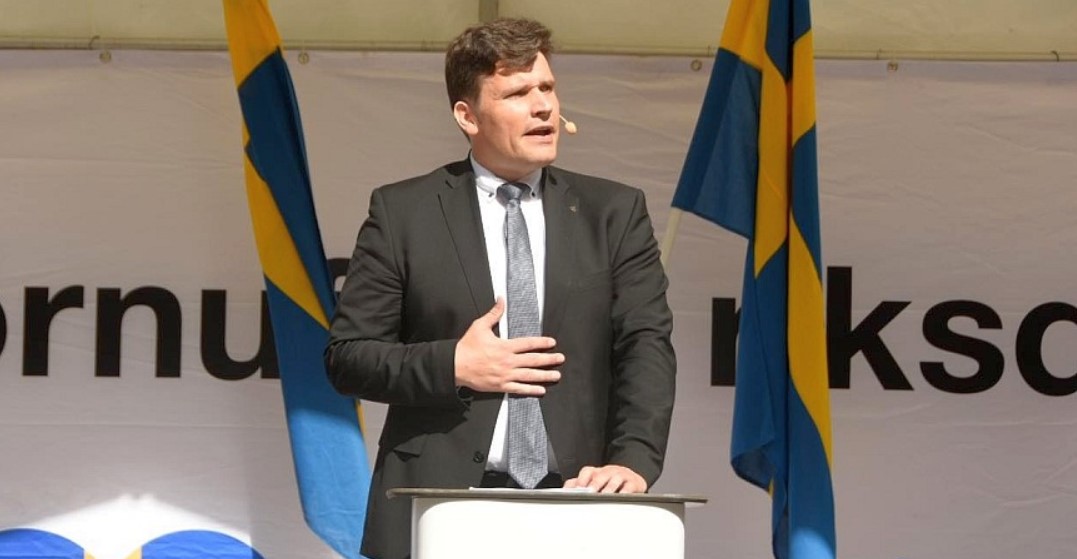
German AfD politician believes Alternative for Sweden has great future potential
StockholmStefan Korte, active in the nationalist party Alternative für Deutschland (AfD) in the state of Brandenburg, participated as a guest speaker at the AfS' election campaign on August 6.
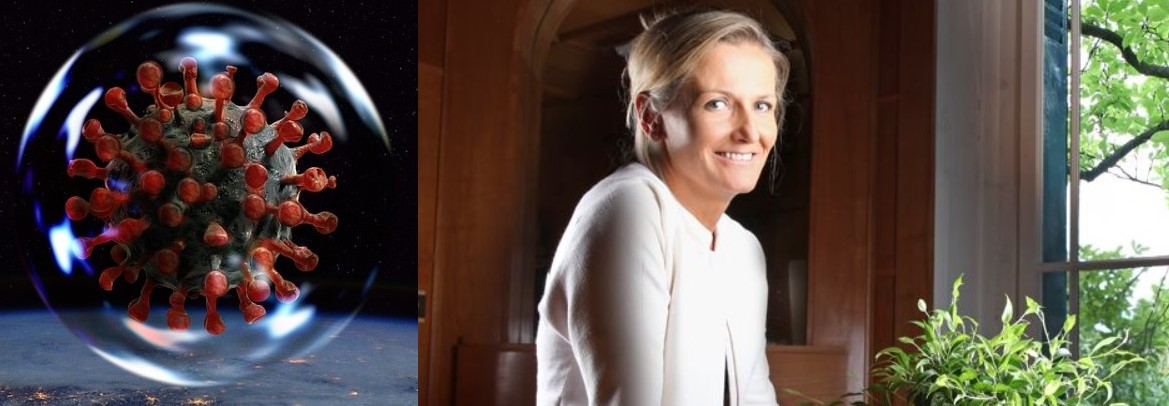
Former WHO employee Astrid Stuckelberger: ‘A pandemic of lies’
Geneva"I am not an alarmist, I just want to explain with science, the lies, the corruption, the propaganda… And about the harm from the vaccines. Because I'm an expert in public health and science." Astrid Stuckelberger has 30 years of experience as a researcher. In the years 2009-13, she was affiliated with the WHO, with pandemics as her specialty. She has published 180 publications and 12 books.
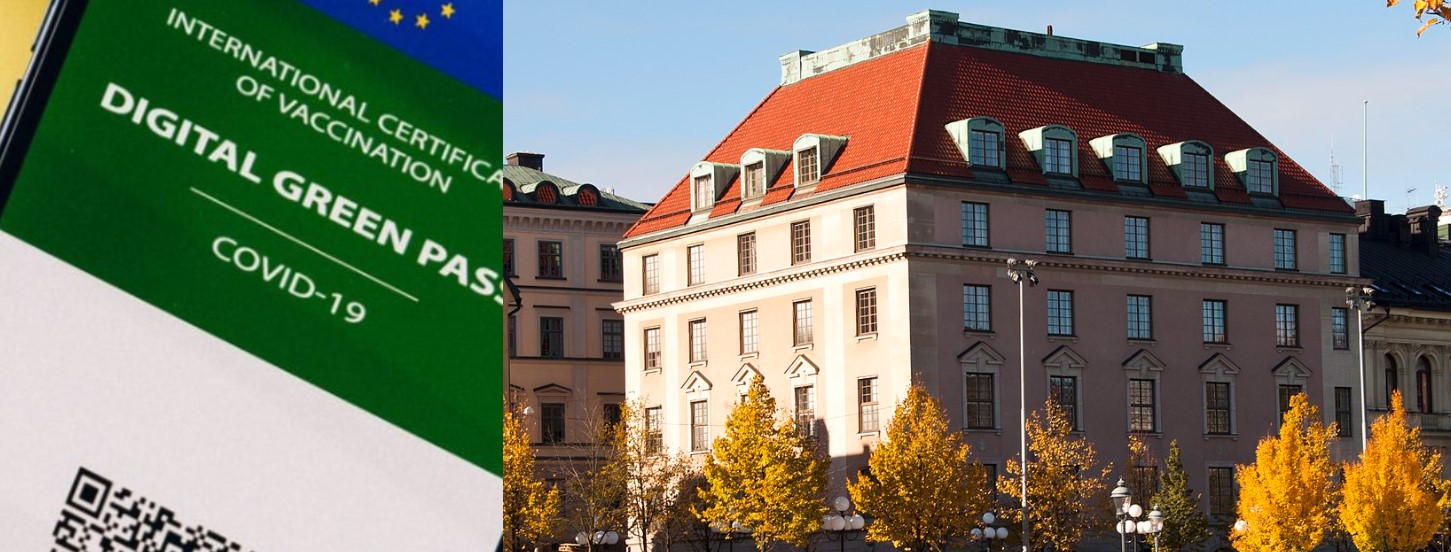
Swedish ombudsman inundated with complaints about compulsory health pass
StockholmSweden's Ombudsman, (JO), is currently drowning in reports from upset Swedes regarding the intended vaccine passes announced by the government and the Public Health Agency. In an interview, JO's information manager, Anders Jansson, admitted that about 6 300 reports have been received so far. He said he has never seen anything like it in such a short time.
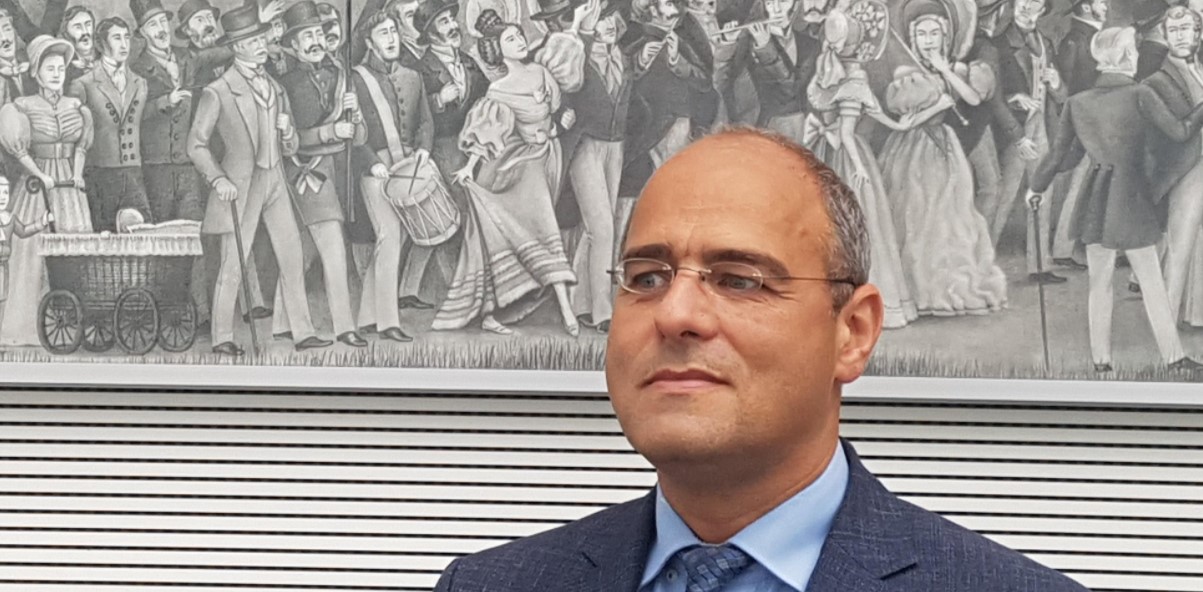
The inauspicious link between Corona and inflation
BerlinThe AfD member of the Bundestag, Peter Boehringer, was interviewed on various current topics in Germany at the beginning of November. He spoke to German journalist Boris Reitschuster. Boehringer is a member of the German libertarian Friedrich August von Hayek society and a climate change critic.
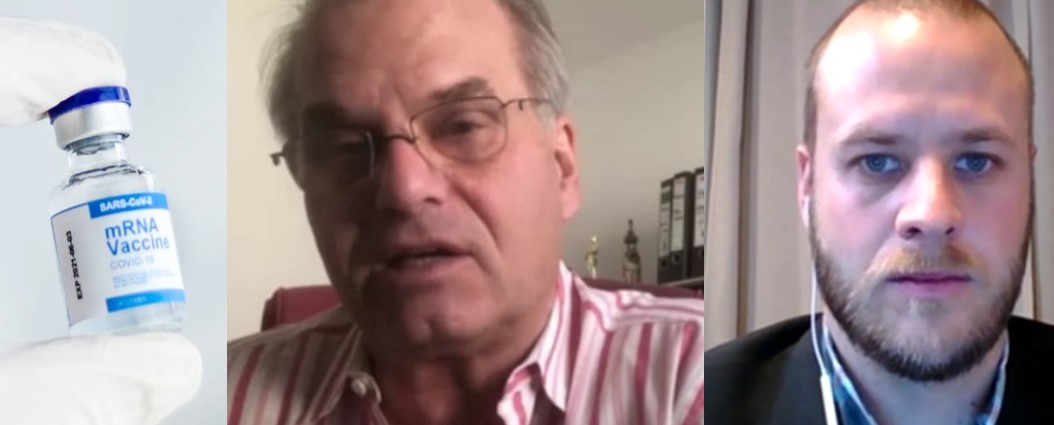
Reiner Füllmich: The pandemic is a global coup d’etat
The famous lawyer Dr Reiner Füllmich speaks exclusively to Free West Media on the topic of the pandemic and the draconian measures that many countries have adopted, and how he and others will be challenging this in court.
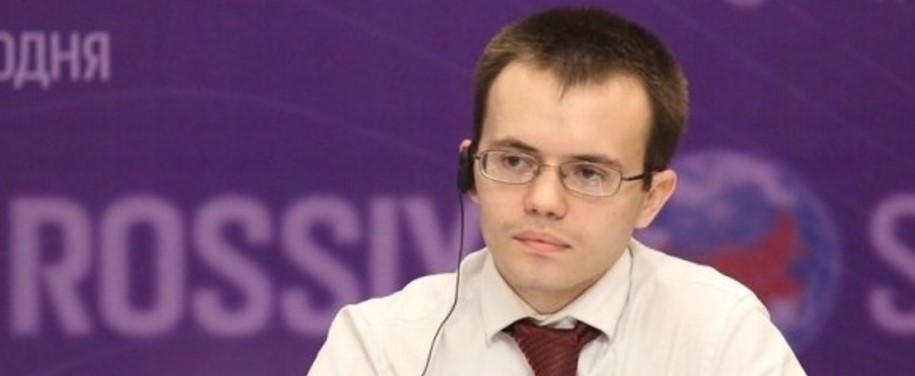
‘US always pursues its interests at others’ expense, even allies’
Recently, the US, UK and Australia formed an alliance which has hurt France on many levels. Steven Sahiounie interviewed Andrew Korybko to gain insight into the back story of this global headline.
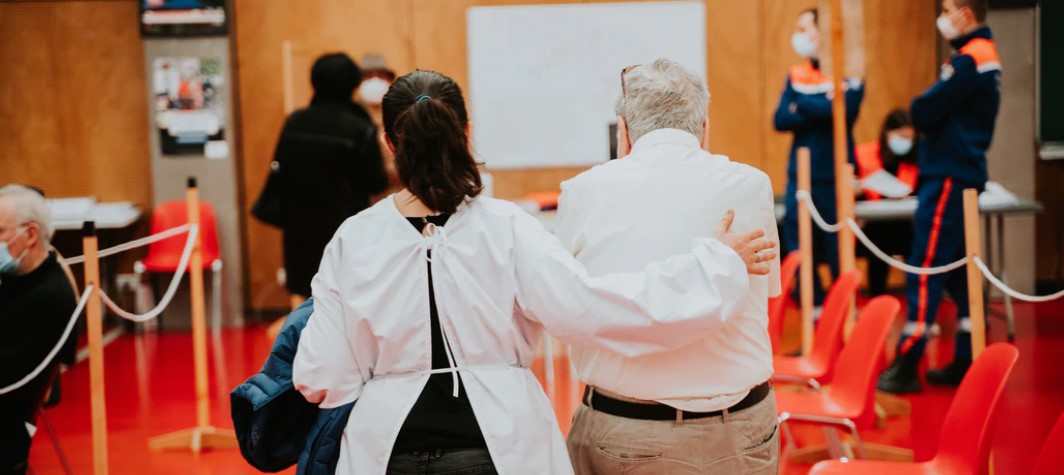
Vaccine wars: How a solution to end lockdowns is being ignored and criminalized
LübeckDr Winfried Stöcker has created and produced, in a fast and targeted manner, a recombinant antigen construct for reliable detection of antibodies against SARS-CoV-2. And a formula for a vaccine is "now available to everyone, free of charge," Stöcker's spokeswoman confirmed to FWM. But instead of being hailed as a true trailblazer, the doctor says he now fears for his life.



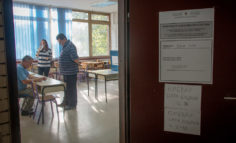


No comments.
By submitting a comment you grant Free West Media a perpetual license to reproduce your words and name/web site in attribution. Inappropriate and irrelevant comments will be removed at an admin’s discretion. Your email is used for verification purposes only, it will never be shared.